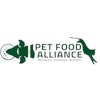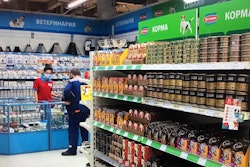
Pet food brands and retailers increasingly use consumer data analysis to drive business strategies. Some companies even collect and decant that information themselves. Two giants in the pet industry, Purina and Chewy, released their own independent survey results on transparency and premiumization, respectively.
Adapted from press releases:
Purina pet owner survey on transparency
Purina PetCare analysts collected survey responses from more than 1,000 dog and cat owners in the United States about ingredient sourcing and traceability. In the Purina survey:
- For 84% of consumers, price is the most important consideration when it comes to purchasing food for their pets.
- 92% of all pet owners are interested in learning more about where ingredients for their pet’s food are sourced, especially dog owners. On average, pet owners know the same amount of information about where their pet’s food is sourced from as their own food.
- Ingredients sourced from the U.S. is a top consideration when shopping for pet food.
- 78% reported that food made with U.S.-sourced ingredients also factored in and 73% said brand recognition is important in selecting pet food.
- 60% of those surveyed said that foods made with certified organic ingredients is a much less important overall consideration, as are those made with plant-based ingredients for vegetarian diet (34%).
- 30% of pet owners say they have good knowledge about where their pet’s food is sourced (9% extremely familiar and 21% know more than the average consumer). This compares to about 32% saying they have good knowledge about where their own food is sourced (9% extremely familiar and 23% know more than the average consumer).
- 68% of Gen-Z pet owners say they care more about where their pet’s food is sourced versus their own food.
Chewy survey of pet owners on premiumization
Pet food, treat and product e-commerce retailer Chewy collected insights from more than 1,500 dog and cat parents through two surveys on motivations to purchase premium food for pets and important factors to consider when making these choices. Overall, more consumers are switching to higher quality food to give their pets a healthier diet and lifestyle and they’re willing to pay more to make sure their pets’ food meets specific criteria.
Chewy surveyed 1,004 pet parents on motivations in choosing pet food, attitudes toward healthy eating, exercise, overall health and wellbeing, food ingredients, and spending. Survey respondents were comprised of pet parents who were current premium pet food purchasers, were considering premium pet food and were not considering premium pet food. Chewy surveyed 500 pet parents on New Year’s Resolutions, sentiments on pets, attitudes toward pet health and interest in pet food ingredients, keywords and origins.
Chewy found that the majority of current premium and superpremium pet food purchasers are Millennials and Generation X pet parents who are health-obsessed. In the survey, 73% of individuals indicated their pets’ health is just as much a priority as anyone else in the family and 70% make food choices for their pets in the same manner as their own. Another 80% of respondents revealed that they had health concerns for their pet which prompted them to consider higher quality food.
More than three-fourths (76%) of respondents admitted that their pet is the most spoiled member in the family. Furthermore, 73% of individuals, largely Millennial pet parents, refer to their pet as their child. Price has very little influence on premium pet food buyers’ decisions as 82% of respondents believe that it is worth paying more for better, healthier pet food and food customized to special dietary needs. When it comes to quality, an overwhelming 89% of pet parents believe their pets should have the highest-quality food available and beyond food, 86% believe their pets should have the highest-quality supplies across all categories.
Ingredient composition and nutrition are top factors for choosing a specific food. Seeking transparency, 87% of respondents stated it’s important to check the ingredient list on package labels and product descriptions. They search for specific keywords including premium, natural, organic and USDA organic, high-quality nutrition, high protein, weight control, healthy, superfood, ancient grain, limited-ingredient, non-GMO, farm fresh and preservative-free.
More than half (52%) of shoppers look for pet food that only contains “clean” ingredients. Millennial and Generation X pet parents are especially interested in grain-free, organic and non-GMO food with 75% choosing those options.
People care where pet food is made with 82% of pet parents interested in geographic origins and physical production locations like factories or farms. With a growing trend toward home-grown, domestically produced food, 84% seek out pet food made in the United States.

















